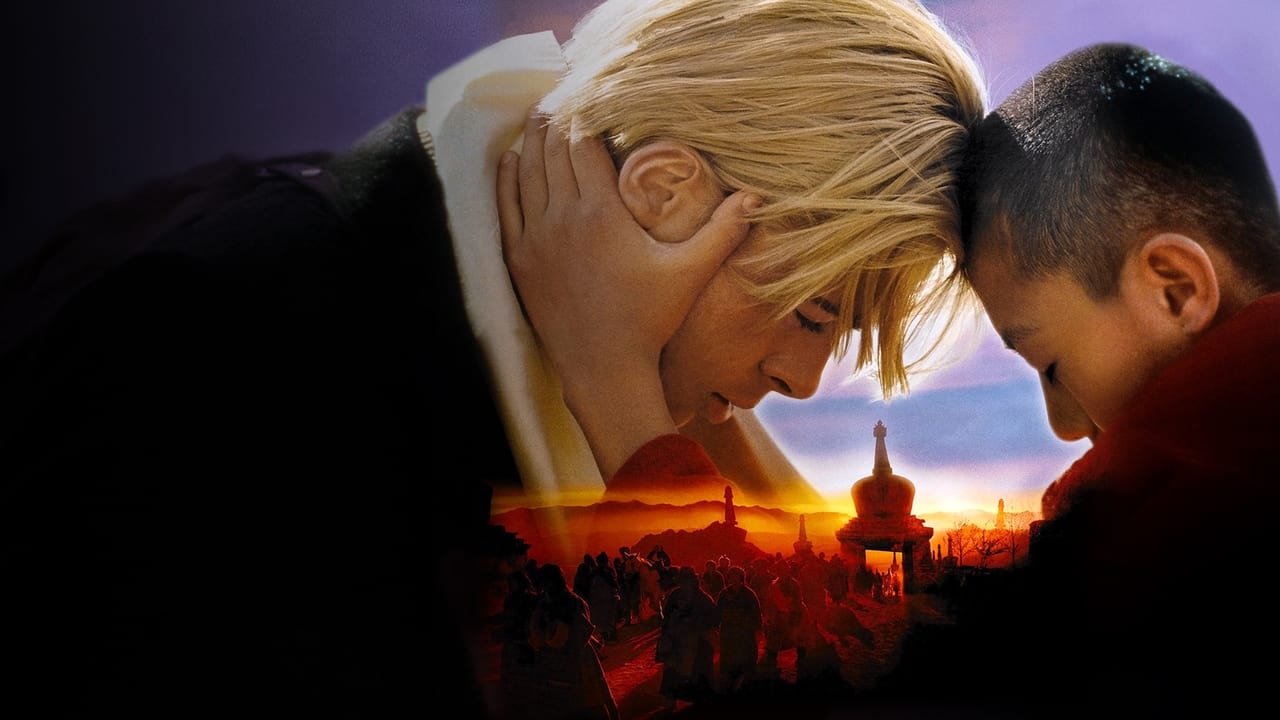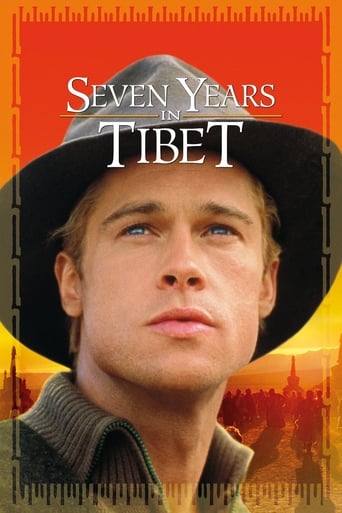



Best movie of this year hands down!
Tells a fascinating and unsettling true story, and does so well, without pretending to have all the answers.
View MoreThis is one of the few movies I've ever seen where the whole audience broke into spontaneous, loud applause a third of the way in.
View MoreStory: It's very simple but honestly that is fine.
This film follows the course of the German climber Heinrich Harrer, who travels to Tibet in order to climb a mountain. The failure of the attempt and the outbreak of World War II takes him to a prison camp (India was a British colony), from where he manages to flee to Tibet, a neutral country outside of English jurisdiction but very averse to visits from foreigners . However, he is able to enter and settle in the capital, where he meets the young Dalai Lama and helps in his education. Thus begins a great friendship between the two, portrayed in a touching way. The plot has a strong story behind it and is truly interesting, with well-developed moral and historical backgrounds, though it does not focus much on the historical facts but rather on the protagonist's personal connection with what happened there. I felt that the Chinese invasion was almost a footnote in the film, and the movie ended up losing with that absence. Brad Pitt gave life to the protagonist and, despite a reasonable performance, was not totally happy with his character. It seems that he has never really been in the shoes of the climber he plays. David Thewlis had more capacity for his character but, being a secondary character, there was little for the actor. One never comes to understand whether Harrer is a sympathizer of Nazi ideas or whether he was merely a victim of events, like so many Germans who suffered from World War II and who have never reviewed the ideas of the regime. The film explores the whole Tibetan ambiance very well, with its impressive scenery and scenery. Although the film fails to create a mountain epic with an emotive background, it is good enough to merit our attention and does a good job showing a little of what Tibet has been in the past. I'm even surprised that this film has not been nominated for a single Oscar, but maybe political reasons have silenced the Academy.
View MoreI have never read Heinrich Harrer's book so I have nothing to compare the film to and no way to know to what degree the film has been fictionalized. So I have to rate this film as "a dramatized or fictionalized biographical film".I saw this movie when it first came out in 1997. This is actually the last movie I have ever seen in a movie theater. (Yes it's been that long since I have been to the theater).This is one of those movies I liked better than I thought I would - it was better than the previews lead me to believe. I thought the movie was actually good. It was heartwarming, a bit adventurous, and quite an interesting story.My rating is based on "just a Hollywood film" and not on if it is a perfectly accurate account or true to the book.8/10
View MoreThis is a really bad piece of disinformation and propaganda. Harrer is depicted as ant-Nazi, while in his real life he was very proud of the honors he received from Hitler and the photos where he appears with the Nazi boss. As a matter of fact he did not leave Tibet until 1950. Why did he remain there? Was he acting as an "adviser" for some Western power? Was he scared of going back to Austria and being summoned by an anti-Nazi courtroom? Or was he even more afraid to fall in the hands of Chinese judges? After all, he was a Nazi, allied with the Japanese, who had invaded China and killed thousands and thousands of innocent Chinese people. And Aufschnaiter? Did he really remain in the Himalayan areas because he had "married a Tibetan woman"? Or was he similarly afraid to go back to the West? After all, he had joined the Nazi Party in 1933. And so on. Movies should be respectful of History and not play with It and twist It as if It were a toy to use for political amusement.
View MoreThis had the foundations to be something truly special. An Austrian mountain climber leaves a dying marriage to explore the Himalayas in British India, but with the onset of World War II is forced to flea through inhospitable terrain to Tibet where he is befriended by a doomed world leader.Fantastic, how could such a unique and complex plot go wrong? Well believe me, they found a way.10 minutes into the movie and I'd already given up on the script, it was dull from the first line and barely improved after that, no point waiting for a witty or insightful remark because it isn't coming.Then there was the editing. Seemingly important scenes are over in a heartbeat while pointless scenes are dragged out. Moments that seem like big twists are immediately and coincidently reversed just 5 seconds later, it's all a bit of a mess. The film never really flows, it limps along, takes a sudden leap, then limps again.Brad Pitt isn't too bad but the supporting cast is pretty hopeless, the acting quality would barely compete with a daytime soap opera, and the elevator music soundtrack just makes thing worse.If you like a bit of culture and funky scenery then it might be worth a look, but otherwise Seven Years in Tibet will feel like seven years in solitary confinement.
View More